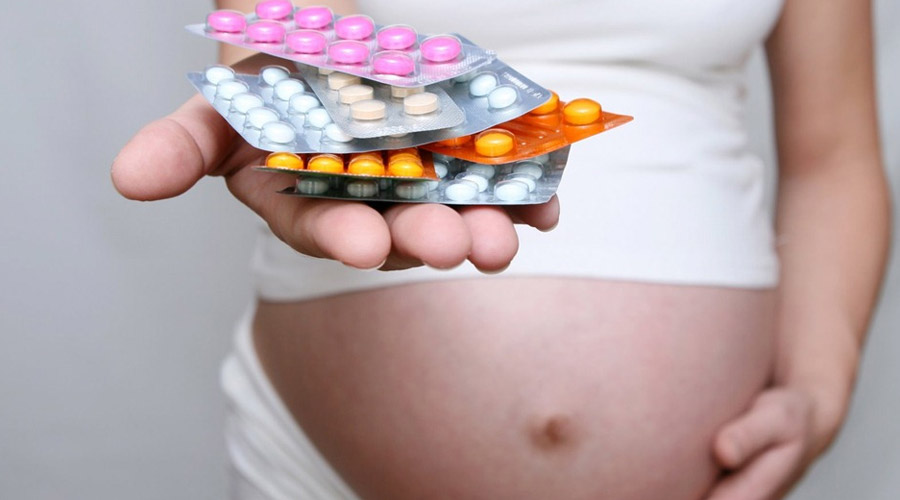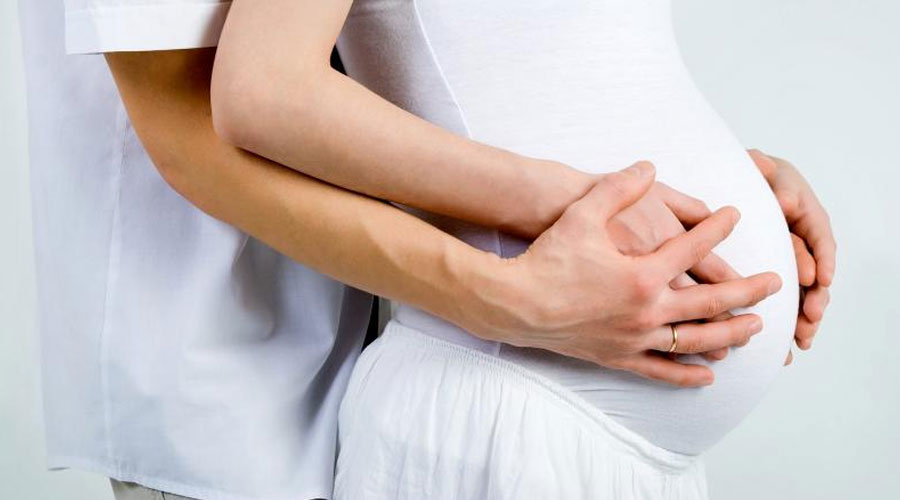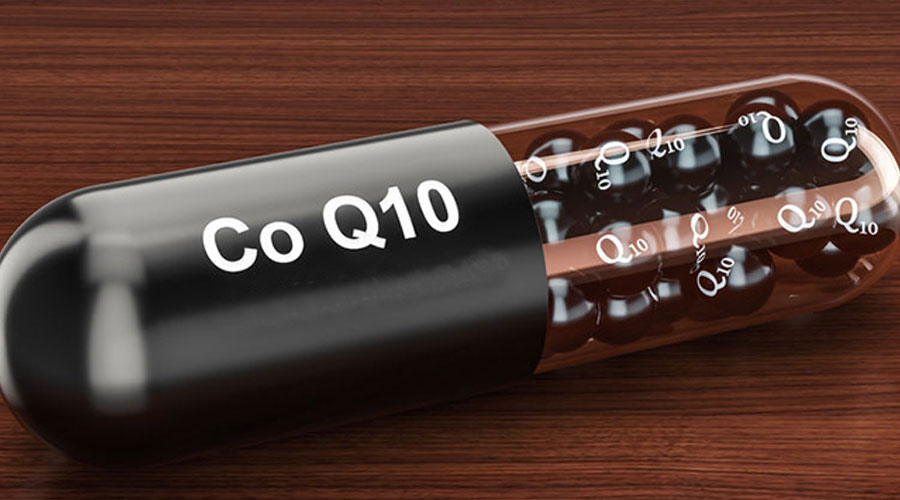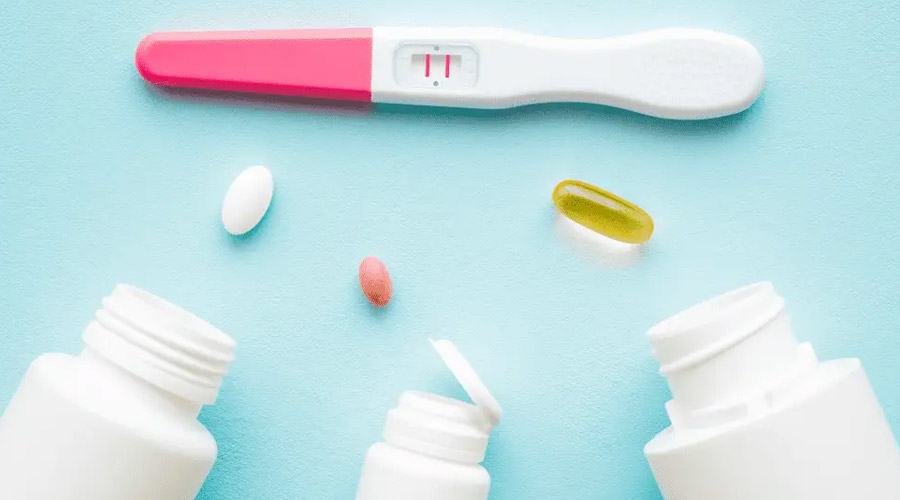There are many different types of vitamins available on the market today. Some people believe that certain vitamins can help with conception, while others are unsure about the effects of these supplements.
However, there is evidence that some vitamins may help conceive. Many experts recommend a balanced diet and plenty of exercises as the best way to conceive, but sometimes people need extra help.
Table of Contents
What are fertility supplements?

Some people believe that fertility supplements can improve a woman’s chances of becoming pregnant.
However, there is no scientific evidence to support this claim. Many fertility supplements are not regulated by the FDA and may contain dangerous ingredients.
To ensure the safety and effectiveness of fertility supplements, it is important to research each product before using it.
The best conceiving vitamins are backed by scientific research and have been proven effective in improving fertility.
Who may take fertility vitamins?
Anyone trying to conceive or who wants to increase the odds of conceiving should consider taking fertility vitamins. There are many different options available, so choosing one right for you is important.
Some people take fertility vitamins to improve their overall health, while others take them for specific reasons such as increasing ovulation or improving sperm quality.
There are some general guidelines that everyone should follow when taking fertility vitamins.
- First and foremost, always talk with your doctor before starting any new supplement regime.
- Second, make sure that the vitamin you choose is safe for you and your partner.
- Third, take the vitamins regularly and track your results over time.
- Fourth, remember that fertility depends on many factors, so don’t expect quick results from taking fertility vitamins.
Conceiving vitamins

There is no one-size-fits-all approach to conceiving, but incorporating a wide variety of vitamins, minerals, and other nutrients into your diet can certainly help improve your chances. Some of the best Conceiving Vitamins include:
B vitamins
A deficiency in any one of the B vitamins can lead to problems during pregnancy. The best way to ensure you’re getting all the Bs your body needs is to take a multivitamin every day.
However, if you are conceiving, it’s important to make sure you take some of the specific B vitamins recommended for pregnant women. These include folic acid, vitamin B12, and vitamin B6.
All three are essential for fetal development and should be taken at least two weeks before conception and continued throughout pregnancy.
In addition to taking a multivitamin or specific B vitamin supplements, eating a balanced diet that includes plenty of vegetables and fruits is also key for ensuring you’re getting all the nutrients your body needs for conception.
Folic acid
Folic acid is a B vitamin that has been linked with conceiving healthy babies.
Experts say that pregnant women who get enough folic acid help prevent congenital disabilities of the brain and spine and major problems with vision and heart health in their children.
Many foods contain folic acid, including leafy green vegetables, citrus fruits, legumes, fortified grain products and some nuts and seeds.
In addition, fortification of many food products is now taking place with folic acid.
Vitamin D

Vitamin D is a nutrient that helps control the body’s calcium and phosphate levels. It is also important for cell growth and development and helps to keep bones healthy.
There are two types of vitamin D: vitamin D2 (ergocalciferol) and vitamin D3 (cholecalciferol).
Vitamin D can be obtained from sun exposure, fatty fish, fortified foods, or supplements.
According to the Centers for Disease Control and Prevention (CDC), most Americans do not get enough vitamin D from sun exposure or food.
The best way to get your daily dose of vitamin D is to spend time outdoors in sunlight between 10 am and 2 pm during the summer months.
Supplementing with vitamin D3 has also increased calcium levels in the blood.
Calcium
According to the Centers for Disease Control and Prevention (CDC), calcium is one of the most important nutrients for pregnant women.
Calcium helps prevent congenital disabilities and other serious health problems in infants. It also helps maintain bone strength and flexibility during adulthood.
There are many ways to get enough calcium, including consuming dairy products, taking supplements, and getting enough calcium through your diet. Some of the best sources of calcium include milk, yogurt, cheese, tofu, broccoli, kale, and spinach.
You can also find calcium in dark green leafy vegetables, dried fruits, nuts, legumes (beans and peas), grains (whole-grain bread and cereals), eggs, and salmon.
It’s important to be aware of the amount of calcium you’re getting from food because not all foods contain the same amount of it.
Zinc
Zinc is an essential mineral for healthy conception. It helps with the production of testosterone and other hormones, which can help stimulate ovulation. Zinc and female fertility is always connected, so don’t forget to take dietary zinc supplements when trying to conceive.
In addition, zinc is important for sperm health, sperm motility and semen quality. Taking a good quality prenatal zinc supplement may help improve fertility outcomes in women.
Acetyl L-carnitine
Acetyl L-carnitine (ALC) is a nutrient that is beneficial for pregnant women and those trying to conceive.
ALC helps the bodies of men and women make energy from fat, which can help to improve fertility. It is also important for maintaining cognitive function and preventing age-related diseases.
Iron
Iron is an essential nutrient for pregnant women and new mothers, who need it to help form the red blood cells that carry oxygen throughout the body to avoid iron deficiency.
While iron deficiency is not life-threatening, it can cause anemia, a condition in which the body doesn’t have enough healthy red blood cells.
There are many ways to increase your iron intake; some good sources include lean red meat, poultry, black beans and lentils, fortified foods such as cereal and breakfast bars, and supplements. This food can also add to your healthy diet.
The best way to ensure you’re getting enough is to talk to your doctor about a personalized vitamin plan that considers your individual health needs. Both men and women need iron dietary supplements to get them ready to conceive.
Selenium

Selenium is an essential mineral that helps to conceive vitamins. Selenium is important for both men and women as it helps maintain a healthy reproductive system.
Selenium can also help prevent congenital disabilities in the baby’s brain and spine. It is best to get selenium from food or supplements rather than drinking water or municipal water supplies.
Vitamin C
Vitamin C is a nutrient that is essential for healthy conception. A study published in the journal Human Reproduction found that women who took 500mg of vitamin C daily during their menstrual cycle had a 31% lower risk of experiencing a pregnancy loss than those who did not.
Additionally, research published in the journal Fertility and Sterility found that women who took 400mg of vitamin C daily had a 30% lower risk of experiencing fertility problems than those who did not.
Coenzyme Q10

Coenzyme Q10 is a vitamin-like compound that is important for conception. Coenzyme Q10 is found in all animal cells and is necessary for the body to produce energy from food.
Some studies suggest that supplementing with coenzyme Q10 may improve fertility and a healthy female reproductive system and conception.
Vitamin E

The benefits of consuming vitamin E have long been known. Recent research has shown that this essential nutrient can also play a role in conceiving babies.
Women who consume the most vitamin E during pregnancy are more likely to conceive successfully.
Here are some key reasons why:
- Vitamin E helps to protect the baby’s developing brain and spine from damage.
- It is essential for fertility and menstrual cycle health.
- According to studies, high levels of this nutrient can help prevent miscarriage by increasing the chances of a healthy pregnancy outcome.
- It also helps to stimulate the production of natural killer cells, which help fight infection in the body.
In addition, vitamin E can support a healthy immune system overall and may even improve fertility when taken before conception or while pregnant.
Omega-3s
Omega-3s are beneficial for both pregnant women and their developing babies. They improve mood, cognitive function, heart health, joint function, fertility, and more!
A good source of omega-3s is fatty fish like salmon or tuna. However, you can also get your omega-3s from supplements. Talk to your doctor about which Omega-3 supplement is right for you!
Should you take a multivitamin instead?

There is a lot of debate surrounding whether or not people should take multivitamins. Some believe that they are a waste of money, while others feel that they can help improve overall health.
However, there is no clear answer as to whether or not multivitamins are beneficial for fertility. Some studies have suggested that taking a multivitamin might help improve conception rates, but other studies have shown no such effects.
Ultimately, the best way to determine if a multivitamin will help you conceive is to try it and see if it has any effect.
Inference
In conclusion, taking prenatal vitamins and supplements is important for both the mother and baby. There are many different prenatal vitamins and supplements, so it is important to find the right one for you.
Many online reviews and forums can help you make your decision. Prenatal vitamins and supplements can be found at most pharmacies and grocery stores.
FAQ
How can I boost my fertility?
There are many ways to boost fertility, and some methods are more effective than others. Here are five of the best fertility boosting tips.
Eat a balanced diet: Fertility is strongly linked to a woman’s overall health, so it’s important to eat a healthy diet that includes plenty of fruits and vegetables.
Foods like cruciferous vegetables, nuts, whole grains, and fish can help improve fertility by providing essential nutrients like folate and omega-3 fatty acids.
Get enough sleep: Getting enough sleep is essential for overall health and well-being, but it can also positively impact fertility by promoting relaxation and stress relief.
Studies have shown that getting less than seven hours of sleep each night can decrease sperm quality and adversely affect pregnancy rates.
Exercise regularly: Exercising regularly has been shown to improve overall health, including sperm count and quality.
Should you take vitamins when trying to conceive?
It’s been established that many people who conceive naturally take vitamins and supplements. Some experts say that taking prenatal vitamins, minerals, protein and other nutrients can help optimize fertility.
However, there is no scientific evidence to support the claim that any specific vitamin or mineral can improve fertility. Before you start taking any supplements, talk to your doctor to see if there are any potential side effects or interactions that you should be aware of.
Can pregnant vitamins help you get pregnant?
If you’re pregnant and looking for a way to conceive, you may be wondering if taking prenatal vitamins can help.
The short answer: Yes, there are many prenatal vitamins on the market that have been shown to improve fertility.
However, it is important to remember that not all prenatal vitamins are created equal, so read the ingredients list carefully before buying one.
Can I take vitamin E and folic acid together?
Taking the right vitamins and minerals can make all the difference in fertility. While many combinations can be effective, vitamin E and folic acid are among the best all-around supplements for conception.
These nutrients are essential for healthy sperm production and may help prevent congenital disabilities of the baby’s brain and spine.
Additionally, both have been shown to help improve fertility rates in women trying to conceive.
If you’re interested in adding these vitamins or minerals to your fertility regimen, speak with your doctor first.
How much vitamin E should I take when trying to conceive?
There is no one-size-fits-all answer to this question, as the optimal amount of vitamin E for conceiving will vary depending on a woman’s specific health and fertility goals.
However, experts generally recommend taking around 400 IU of vitamin E daily while trying to conceive, though some people may need up to 800 IU.
As with all supplements, be sure to speak with your doctor before starting any new supplementation regimen if you are pregnant or trying to become pregnant to ensure you can support fertility.
